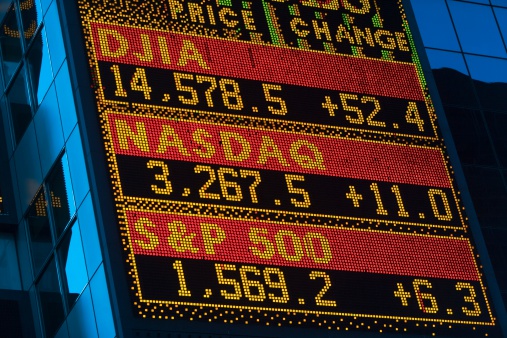
Alan Schein Photography/Fuse via Thinkstock
The House Committee on Financial Services held a hearing Thurs., June 26, to oversee the Securities and Exchange Commission’s (SEC’s) Division of Trading and Markets. The purpose of the hearing was to ensure that the SEC fulfills its three-part mission: 1) protecting investors; 2) maintaining fair and efficient markets; and 3) facilitating capital formation.
The SEC Division of Trading and Markets oversees primary securities markets participants, self-regulatory organizations (e.g., stock exchanges, the Financial Industry Regulatory Committee (FINRA), the Municipal Securities Rulemaking Board (MSRB), credit rating agencies, broker-dealers, security-based swap dealers, and transfer agents.)
Stephen Luparello, Director of the SEC’s Division of Trading and Markets was the sole witness at the hearing. Director Luparello’s testimony focused on the division’s efforts to evaluate and enhance equity market structure. Recently, the SEC approved an order requiring the exchanges and FINRA to submit a plan by mid-August for the implementation of a one year-long, tick size pilot that would widen the quoting increment and trading increment for smaller company securities. If successful, the pilot would be helpful researching the effect of tick size on liquidity, execution quality for investors, market maker participation, competition, transparency, and institutional ownership.
The Division is also currently working to adhere to the Dodd-Frank Act Title VII mandate to establish a new regulatory regime for “security-based” swaps. The rules are intended to reduce systemic risk, increase market transparency for regulators and market participants, address capital and margin requirements, and potential conflict of interest issues relating to security-based swaps.
During the hearing several congressman voiced concerns over the impact of High Frequency Trading (HFT) on investor perceptions of market fairness. Stating the importance of market transparency as a way to combat such perceptions and encourage investment. Firms that specialize in HFT have records of unnaturally high success, making it appear that they have manipulated the market in ways to lower risks. Due in large part to these manipulations, policy changes may be necessary to regulate such practices in an attempt to discourage the appearance, or fact, of market manipulation.
Director Luparello’s concerns for market transparency led to a discussion of dark pools. Dark pools are networks which exist so traders can buy or sell orders without the risk of others, mainly HFT firms, affecting the price. Approximately 37 percent of transactions occur in dark pools, and some fear this lack of transparency contributes to inefficient pricing in traditional open stock exchanges. Mr. Luparello concluded that while trading in dark pools does affect traditional markets, their impact is minimal.
Jame Alt is and intern in the Government Affairs office at Financial Executives International and a senior at the University of Iowa.